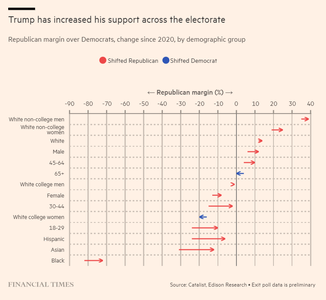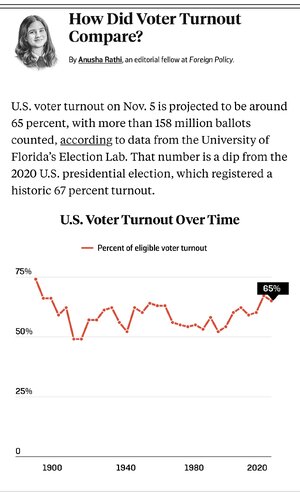Super, you are continuing to demonstrate an inability to understand/see things through their lens. This disconnect is a major reason why she lost. Chalking it up to "she's a woman and that is why she lost," is lazy-think.
Not agreeing with super but let's talk about how to read a Lowe's or HD parking lot.
If it's compact and lowered, it's a boy or girl's toy.
If it's raised without a camper or tool box, it is either a toy, a farmer or rancher. If it's clean and pimped out, probably the first. Probably not middle class
Normal without a tool box is a supervisor or errand boy. Look at the trim package. With a tool box , a foreman or a person doing a punch list.
A dually is generally a mason, almost always with a crew cab or a horse person. Look for the gooseneck hitch. These people are not middle class.
Most of the serious tradesmen will be driving something with a ladder rack, mostly vans for weather protection, security and carrying capacity. Ladder racks for painters, roofers and carpenters. A combination ladder and pipe rack for plumbers and electricians.
Another rule of thumb, if it's not dented or scratched, it's not a work truck. Once saw a guy drive up and park at Fitch in a brand new truck. He got out and put in his order, drove over to the lumber rack. He and his helper got out. He took a hammer and put a dent right in the middle of the top of the tail gate and told his helper that this was a work truck and he didn't have time to worry about who put the first dent or scratch on it.
Obviously, this is neither comprehensive nor completely accurate but it is true that a lot of those gas guzzlers are for the working class. I don't care who or why people own them but a lot of the expenses on a work vehicle are deductible and the others can complain to someone who cares.


